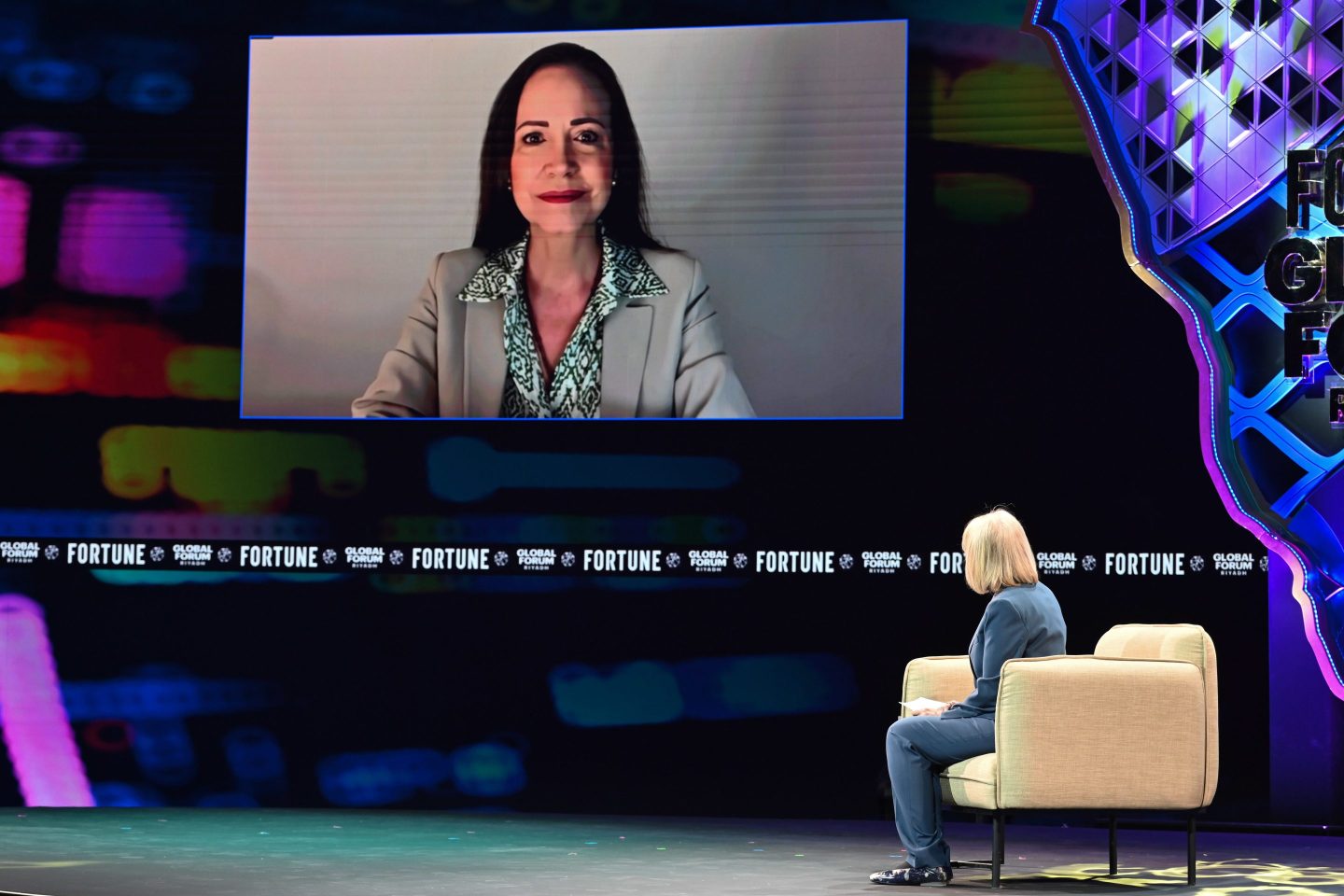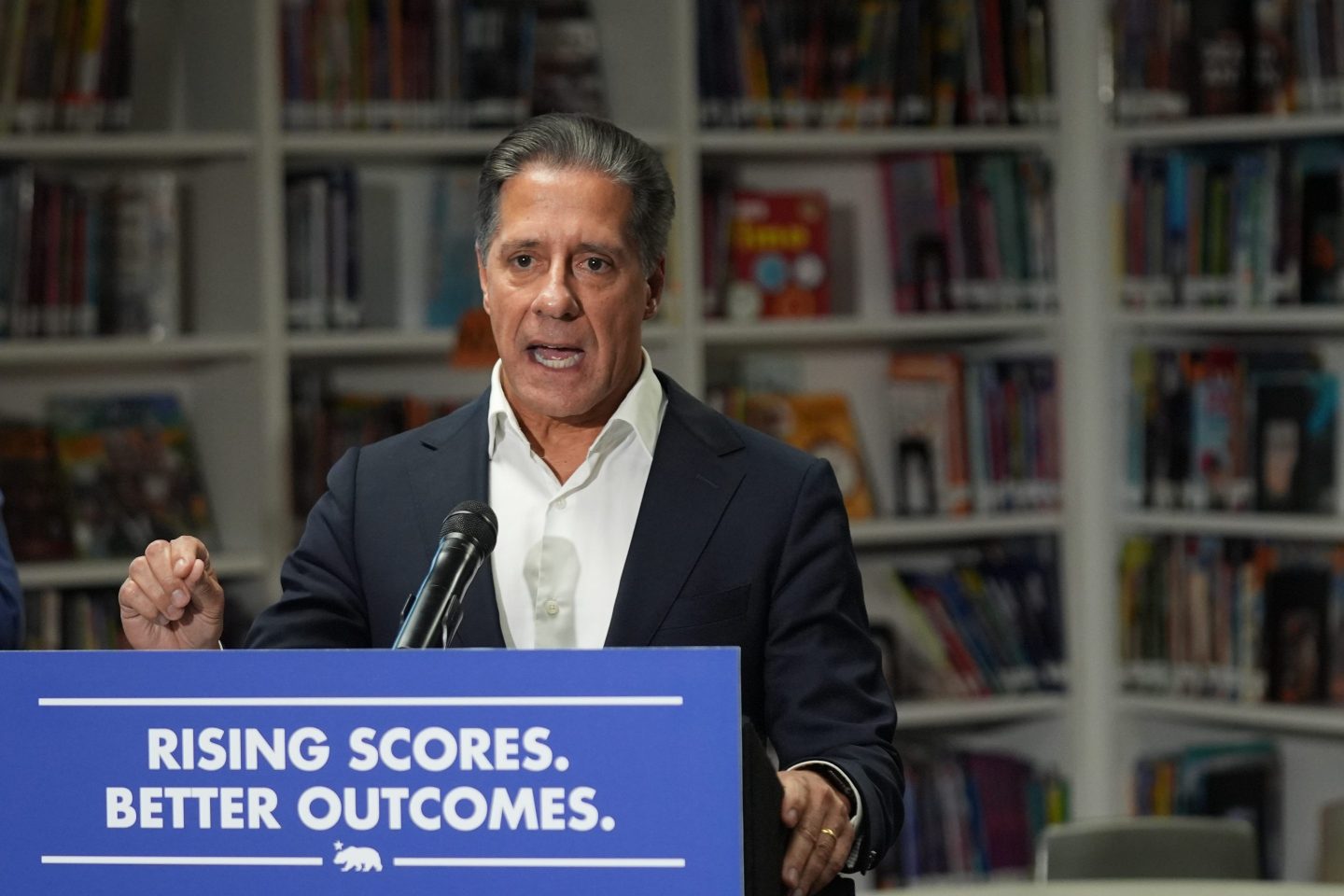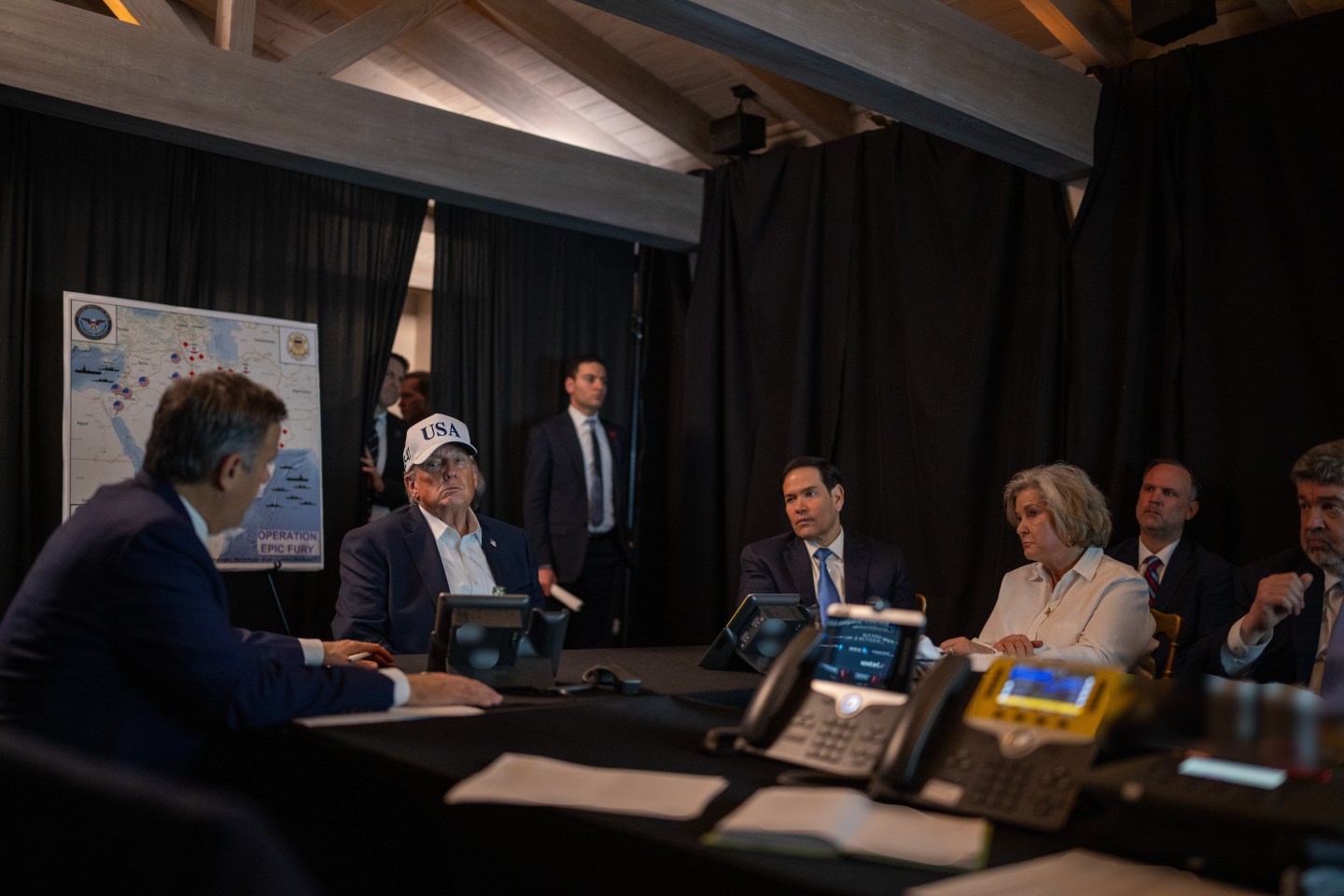Months before the U.S. military arrested Venezuela’s Nicolás Maduro, opposition leader María Corina Machado called for what she described as the most ambitious economic transformation in the nation’s history—a sweeping privatization aimed at reversing his policies and what she calls “the disaster this socialist system has wrought.”
Appearing virtually on the Fortune Global Forum stage in Riyadh, Machado, while in hiding from the Maduro regime, unveiled a bold vision to rebuild Venezuela’s shattered economy through large-scale private investment.
“Venezuela will be the single biggest economic opportunity for decades to come in this region,” she told Fortune’s Diane Brady at the forum’s 2025 edition, weeks after winning the 2025 Nobel Peace Prize for her decades-long fight to restore democracy to Venezuela. “We’re talking about an opportunity, business opportunity, of more than $1.7 trillion. This is unique.” Machado has floated the $1.7 trillion figure before, an estimate produced by her economic advisory team.
From ruin to renewal
Machado painted a stark picture of a nation that has plummeted from prosperity to poverty: “a country that used to be the richest country in our region and the freest country in our region, and that has turned into one of the poorest.” Being under socialist rule for decades, she said, has crippled industry, devastated infrastructure, and triggered an exodus of nearly a third of Venezuela’s population. “Our economy has collapsed. It’s been over 80% down in the last [several] years,” she said. “Our people have been forced to flee just to survive.”
The International Monetary Fund estimated Venezuela’s economy had declined by roughly 75% as of late 2022, also covering its migrant crisis. The left-wing think tank Center for Economic and Policy Research argued shortly afterward that, while this figure was accurate, it discounted the severe economic sanctions imposed by the U.S. on Venezuela for many years.
The opposition leader described to Brady what she called a “narco-terrorist state” built on repression and corruption, saying that “certainly Venezuela has turned into a safe haven for criminal activities from all over the world.” She accused Maduro and his allies of financing their grip on power through gold smuggling, arms and drug trafficking, and human exploitation.
The privatization blueprint
At the core of Machado’s plan is a rapid and transparent privatization process. She estimates that more than 500 enterprises were “taken by the regime, confiscated, destroyed, but the infrastructure is there.” She pledged strict oversight and rule of law from “day one,” aiming to lure investors back with stability and fiscal incentives. She pledged open markets and an approach that would be “absolutely strict” in terms of rule of law and transparency, reminding Brady that Venezuela is currently in last place in terms of rule of law. To take one example, the World Justice Project recently ranked Venezuela No. 142, out of 142 countries.
She also pointed out that Venezuela has the largest oil reserves in the world and the eighth largest natural gas reserve globally, “but currently our people don’t even have gas even to cook. That’s a disaster.” Bloomberg reported in December 2024 that Venezuelans were turning to firewood and even their own furniture to cook after an explosion at a propane plant wiped out most of the country’s transmission. “The socialist system has rotted,” she said.
Restoring the oil and gas sectors, she added, will demand both foreign capital and the return of Venezuela’s diaspora. “Our human talent, our people, our diaspora … is willing to come back as soon as Venezuela goes to work hard.”
Call to investors and allies
Machado said she would welcome responsible private investment from “all over the world”—including the United States, Europe, China, and the Middle East—provided all projects adhere to transparency and fair competition. Speaking to the forum in Riyadh, she also signaled strong interest in partnerships with Gulf nations.
She called for an international front to expose and freeze assets linked to Maduro’s circle. “We are asking all democratic countries around the world … to have a full disclosure of all the information they have regarding all the crimes Nicolás Maduro and his cronies have committed,” she said.
Despite living in hiding, Machado was resolute about Venezuela’s future. “If the regime finds me, I’ll likely be disappeared,” she said matter-of-factly, betraying a hint of emotion but quickly adding that her own dangers and struggles are no different from that of any Venezuelan who speaks out at this moment. “I want you to know that I am absolutely convinced that we’re moving into a transition that is going to be orderly. Venezuela is a cohesive society, we have no tensions, racial, religious, social, political, and 90% of our country wants the same, to live with dignity, with justice, certainly with freedom, and we want to bring our kids back home.”
This story was originally published on Oct. 27, 2025.













